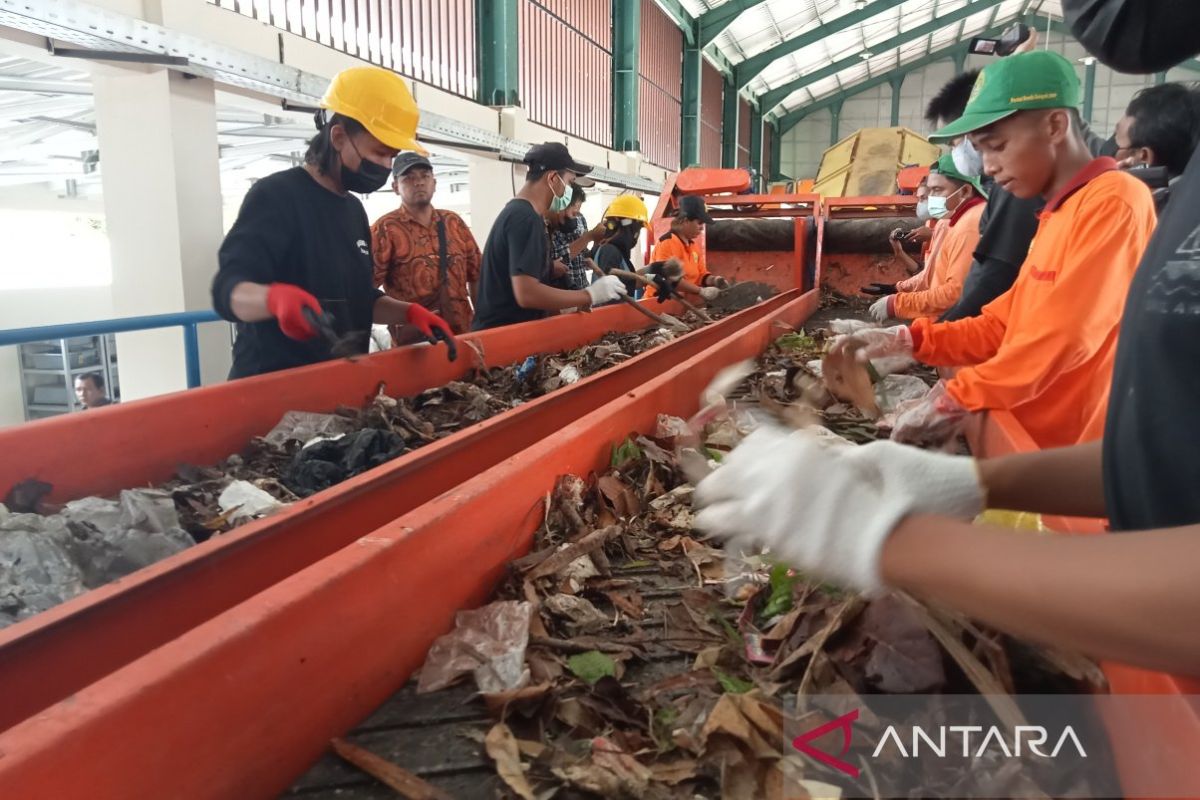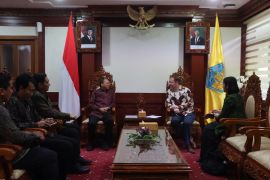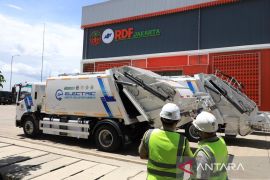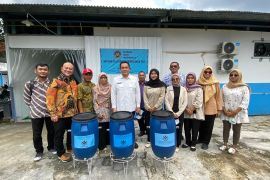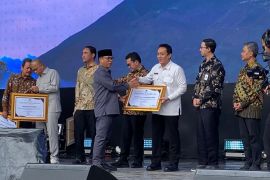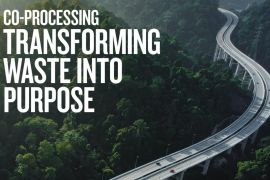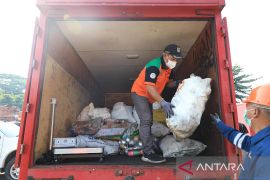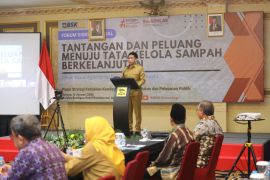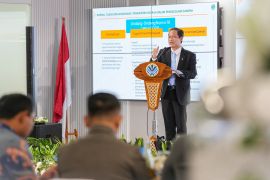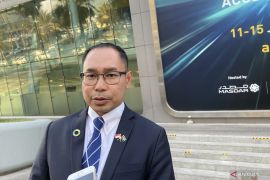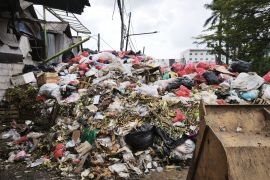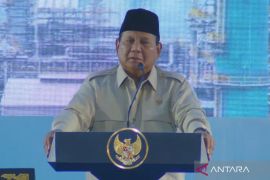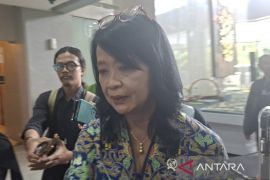After the catastrophic incident, the government issued Law Number 18 of 2008 on Waste Management to push for better waste management and to reduce waste generation.
Two decades after the landslide and 17 years since the law was enacted, waste management in Indonesia remains suboptimal. Waste generation continues to rise alongside population growth, with significant leakage into the sea and other environments, creating microplastics that are harmful to health.
According to the National Waste Management Information System (SIPSN) of the Ministry of Environment, waste generation in 2024 reached 33.7 million tons, based on reports from 311 districts and cities. Around 40.12 percent of this waste was unmanaged, posing environmental leakage risks.
National Research and Innovation Agency (BRIN) researcher Muhammad Reza Cordova estimated that around 350 thousand tons of plastic waste entered Indonesia's oceans in 2024, with 70 percent originating from land-based human activities.
Economic losses from waste leaking into water bodies reach around Rp250 trillion (around US$15.07 billion) for the maritime, marine, and fisheries sector, excluding losses from environmental damage.
Specifically, potential danger arises when plastic waste leaks into waters and other ecosystems, as it takes hundreds of years to decompose naturally. During that process, plastic degrades, releasing microplastics, polluting the environment, and threatening marine life and human health.
Indeed, several efforts to encourage waste reduction and improve waste management have made progress. In the last few years, there has been a shift in people's lifestyle, reflected by the trend of using tumblers as an eco-friendly alternative to single-use plastic bottles.
Several regional governments have also taken bold steps by banning single-use plastic bags, as has been imposed in Bali, Jakarta, Surabaya, and several other areas. The Bali Provincial Government has also recently banned the production of bottled drinking water under one liter to reduce plastic waste.
However, waste continues to accumulate, exacerbated by open dumping practices in landfills. Some landfill sites even have waste piles as tall as buildings, including large landfills such as the Bantargebang Landfill, which serves Jakarta, and the Sarimukti Landfill, which accommodates waste from the Greater Bandung area.
The government has taken emergency steps to find technological solutions that address both new waste and the legacy waste piling up in various landfills. The solutions include utilizing waste to generate electricity.
To achieve this, the Indonesian Government then streamlined the licensing process to facilitate the construction of waste-to-energy plants (PLTSa). This step was taken as the PLTSa construction has not met the target in the country.
Of the 12 targeted cities, currently, only two PLTSa plants -- Putri Cempo PLTSa in Surakarta and the Benowo PLTSa in Surabaya -- are fully operational.
To accelerate the construction of waste-to-energy power plants (PLTSa), Coordinating Minister for Food Zulkifli Hasan stated that several regulations have been consolidated.
These include Presidential Regulation No. 97 of 2017 on national policies and strategies for managing household and similar waste, Presidential Regulation No. 35 of 2018 on the acceleration of waste-to-energy installation development using environmentally friendly technology, and Presidential Regulation No. 83 of 2018 on marine waste management.
Hasan stated that merging those regulations would make the licensing process simpler. In the past, the process required several layers of approval, including from the local representative council (DPRD), regional government, the Ministry of Finance, and the Ministry of Energy and Mineral Resources.
Under the new regulation, the process is intended to be simplified, requiring licensing only from the Ministry of Energy and Mineral Resources and the state-run electricity company PLN. Additionally, the new regulation will set electricity rates for PLTSa, which will be higher than the current rate of 13.5 cents per kWh.
The adoption of PLTSa was pursued as ongoing waste generation could not be managed solely by efforts to change the current lifestyle of the community.
Hasan assessed that relying on technology to reduce waste is necessary amid the current conditions.
In the wake of concerns about pollutants from PLTSa, the government has pledged not to overlook the issue by ensuring the use of technology chosen by PLN and supported by the Investment Management Agency, Danantara. With serious handling, the pollutant emissions are expected to be minimized as much as possible.
RDF development
Apart from encouraging the construction of PLTSa, the Indonesian government is also now continuing to promote the use of Refuse Derived Fuel (RDF), which is produced using waste, pelletized into fuel that can be used as a substitute for coal.
Deputy Minister of Environment Diaz Hendropriyono highlighted the significant potential for using RDF in industry, particularly in the cement sector, which is actively seeking an alternative to coal.
He noted that at the factory complex of one of Indonesia's biggest cement producers in Citeureup, Bogor, West Java, the daily demand for RDF is 2,500 tons, but there is still a shortfall of 1,000 tons per day.
This requirement even exceeds the RDF absorption capacity of several Coal-Fired Power Plants (PLTU), which use around 6 percent RDF in their combustion process, compared to 42 percent used by the cement industry.
To this end, the Ministry of Environment fully supports the realization of collaboration between regional governments, as landfill managers, and industries that require RDF as part of the efforts to reduce and manage waste.
This step is deemed necessary to achieve the 100 percent waste management target by 2029, as stated in the 2025-2029 National Medium-Term Development Plan (RPJMN).
Utilizing those technologies would not be an elixir that can resolve all waste issues in Indonesia. However, it is expected to contribute significantly, accompanied by the participation of businesses and behavioral change in the community.
Related news: Indonesia partners with World Bank to tackle waste problem
Related news: Waste-based power plants to use pollutant-reducing tech: Minister
Translator: Prisca Triferna, Raka Adji
Editor: Primayanti
Copyright © ANTARA 2025
